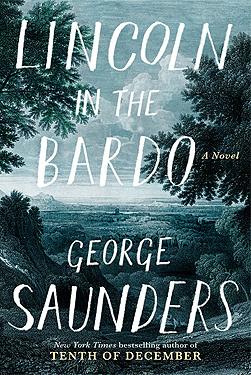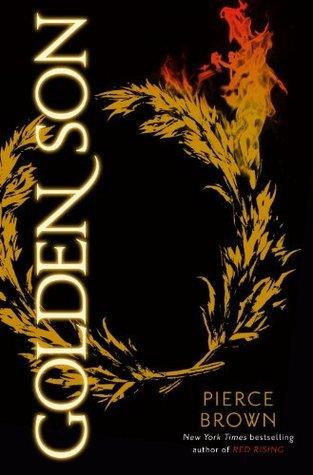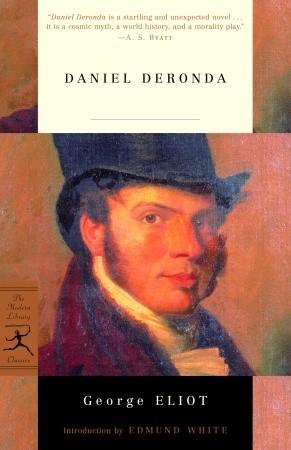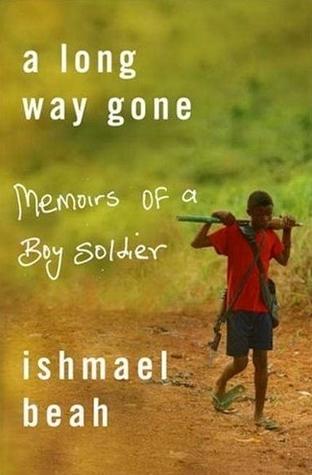Lincoln in the Bardo by George Saunders Book Summary
Discover a comprehensive summary and insightful review of "Lincoln in the Bardo" by George Saunders. Explore key themes, character analysis, and thought-provoking insights that illuminate this unique narrative. Perfect for readers seeking a deeper understanding of this acclaimed novel.
Lincoln in the Bardo Book Summary
Lincoln in the Bardo by George Saunders is a groundbreaking historical fiction novel that reimagines President Abraham Lincoln's grief over his son Willie's death in 1862. Set in a liminal space between life and death, the story unfolds through multiple voices of spirits trapped in Georgetown's Oak Hill Cemetery, where Willie Lincoln is buried. Saunders masterfully blends historical facts with supernatural elements, creating a haunting meditation on loss, love, and the American Civil War era. This Pulitzer Prize-winning novel challenges traditional narrative structures while exploring profound themes of mortality, parenthood, and national trauma through an innovative chorus of ghostly narrators.
Enhance your reading journey by exploring The Girls Book Summary, Review & Key Insights for a deeper understanding, key takeaways, and insightful analysis that enrich your knowledge effortlessly.
Lincoln in the Bardo by George Saunders - Introduction
I had no idea that a story about Abraham Lincoln’s grief could feel so otherworldly and intimate at the same time. When I picked up Lincoln in the Bardo, I thought it was just another historical fiction novel, but it surprised me with this mix of fantasy, magical realism, and deep emotional truth. The book takes place in this liminal space—a sort of ghostly waiting room—where spirits linger, and it really made me rethink how we process loss and what it means to let go.
I grabbed it because I’d heard George Saunders was a master storyteller, and I was curious about how he’d handle such a heavy subject. Plus, the audiobook version is incredible—so many voices, almost like a play, which made the 343 pages fly by in about 8-10 hours. It’s not your typical historical novel; it blends literary fiction with something much more experimental.
If you’re someone who loves stories that make you feel deeply but also challenge the way you think about life and death, this book is for you. It’s perfect if you enjoy adult fiction that’s both thoughtful and imaginative, or if you’re into novels that blur the lines between reality and fantasy.
Honestly, I think you’d get a lot out of it—whether you’re into history, literature, or just great storytelling that sticks with you long after the last page.
What is Lincoln in the Bardo About?

"Lincoln in the Bardo" by George Saunders is a poignant exploration of grief and the afterlife, centered around President Abraham Lincoln's mourning of his son, Willie, who has recently died. The main message highlights the profound impact of loss and the interconnectedness of human experiences, emphasizing that love transcends even death. Key concepts include the nature of grief as a collective experience, the fluidity of time and existence in the afterlife, and the importance of compassion and understanding in the face of suffering.
About Book Author - George Saunders
It's a real pleasure to introduce our next speaker. George Saunders didn't start out aiming to write a novel about Abraham Lincoln's grief. For years, the image of Lincoln visiting his young son Willie's crypt in the bardo – that transitional space between lives – was just a seed, an idea he carried. What's interesting about George is how his path, including a stint working with an oil exploration crew in Sumatra, gave him such a profound ear for the diverse, often overlooked voices that populate his stories, from Pastoralia to Tenth of December.
He has this uncanny ability to delve into the human psyche, making us laugh and ache, often in the same sentence. It's this deep empathy, this exploration of our shared vulnerabilities, that made him uniquely suited to bring Lincoln in the Bardo to life. He wasn't just recounting history; he was excavating the emotional core of a nation's sorrow through a father's love, using a form as innovative as the story itself. Please welcome George Saunders.
More Books To Find
Lincoln in the Bardo - Book Overview
It's about a unique blend of history and the afterlife, focusing on a moment when President Lincoln's son, Willie, dies. The story unfolds in a graveyard where spirits, including Willie, linger, grappling with their unfinished lives and the pain of loss.
Saunders wrote it to explore the complexities of grief and the human condition. He dives deep into how we deal with death and the connections we have with those we've lost, using a blend of humor and heartbreak that feels incredibly relatable.
What makes it stand out is its format. Instead of a traditional narrative, it’s told through a series of voices—like a chorus of ghosts—all with their own perspectives. This creates a tapestry of emotions and experiences that you don’t often see in literature about loss. It’s almost like listening to a podcast where everyone shares their stories, and you get a fuller picture of the human experience.
One story that really stuck with me is when one of the spirits reflects on their regrets. They talk about how they wished they’d been more present in life, which hit me hard. It’s a reminder that life is fleeting, and we often take our time for granted. That blend of poignant reflection and the surreal setting makes it a memorable read.
Key Insights of Lincoln in the Bardo
Insight 1: The theme of grief is central to the narrative. The story explores President Lincoln's profound sorrow over the death of his son, Willie, reflecting on how loss can shape one's identity and actions.
Insight 2: The novel employs a unique narrative style, blending historical fact with fiction. Saunders uses a chorus of voices from the dead to convey different perspectives on life, death, and the afterlife, creating a rich tapestry of human experience.
Insight 3: The concept of bardo, a Tibetan term for the transitional state between death and rebirth, plays a crucial role. It represents the struggle of souls to move on, mirroring Lincoln's own struggle with acceptance and the weight of his responsibilities.
Insight 4: Saunders highlights the importance of connection. The interactions between the characters in the bardo illustrate the need for human relationships and the impact of love and loss on our lives, emphasizing that we are never truly alone in our sorrow.
Insight 5: The novel prompts readers to consider the nature of existence and mortality. Through Lincoln's journey and the voices of the deceased, it raises questions about what it means to live fully, the legacy we leave behind, and how we confront our own mortality.
Who Should Read This Book
"Lincoln in the Bardo" by George Saunders is ideal for readers who appreciate innovative storytelling and historical fiction. Those interested in the complexities of grief, loss, and the afterlife will find the narrative deeply resonant. Fans of literary fiction seeking a blend of humor and poignancy will be captivated by Saunders' unique style and character-driven approach. Additionally, history enthusiasts and anyone intrigued by Abraham Lincoln's personal struggles during the Civil War will gain valuable insights. This book appeals to those who enjoy thought-provoking literature that challenges conventional narratives and explores the human experience.
Read If You Are
- a fan of experimental narrative styles and innovative storytelling
- interested in themes of grief, loss, and the afterlife
- looking for a thought-provoking exploration of historical figures and their humanity
Skip If You Are
- Looking for a straightforward narrative without experimental writing styles
- Uninterested in historical fiction or the exploration of grief and loss
- Preferring traditional character development over a more abstract, ensemble approach
Important Takeaways from this Book
-
Practice Empathy Daily: Spend 10 minutes each day reflecting on someone else's feelings or experiences. This matters because understanding others fosters deeper connections and compassion, enhancing your relationships. Consider keeping a journal to track your reflections.
-
Engage in Active Listening: In your next conversation, focus entirely on the speaker without interrupting or planning your response. This action is crucial as it shows respect and builds trust, making others feel valued. Ensure your environment is free from distractions to maximize your attention.
-
Embrace Vulnerability: Share a personal story or struggle with a trusted friend or family member. This is important because it creates authenticity in relationships and encourages others to open up. Choose someone you feel safe with to facilitate a supportive exchange.
-
Reflect on Mortality: Spend a few minutes each week contemplating what truly matters in your life. This practice helps prioritize your time and energy, leading to a more fulfilling existence. Consider writing down your thoughts to clarify your values and goals.
-
Act on Kindness: Perform one small act of kindness each day, such as complimenting a stranger or helping a colleague. This matters because it creates a ripple effect of positivity in your community. Be mindful of opportunities around you and commit to taking action without expecting anything in return.
Book Review
I picked up "Lincoln in the Bardo" by George Saunders expecting a straightforward historical fiction about Abraham Lincoln, but what I got was a unique, genre-bending exploration of grief and the afterlife. The narrative structure, which weaves together snippets of dialogue from various characters in the bardo, was initially disorienting. However, as I settled into it, I found it incredibly engaging and emotionally resonant.
One of the book's greatest strengths is its ability to evoke deep feelings. For instance, the portrayal of Lincoln mourning his son, Willie, is heart-wrenching and beautifully written. The way Saunders captures the essence of sorrow through the voices of the dead is both profound and haunting. His lyrical prose is a standout feature, making even the most surreal moments feel tangible.
That said, the pacing can be uneven. At times, I felt the story meandered, especially with the numerous voices and perspectives. While this added depth, it also made it challenging to maintain focus. A more streamlined narrative might have enhanced the overall impact.
Comparing it to similar books, I found it reminiscent of "The Lovely Bones" in its exploration of the afterlife but far more experimental in form. If you enjoy literary fiction that challenges conventions and delves into complex emotions, this book is for you. However, if you prefer traditional storytelling or a linear plot, you might find it frustrating.
Overall, I appreciated "Lincoln in the Bardo" for its emotional depth and innovative style. It's a thought-provoking read that I would recommend to anyone open to a different kind of narrative experience.
Final Thoughts
If I'm being honest, finishing Lincoln in the Bardo left me feeling a mix of awe and introspection. George Saunders crafts a haunting narrative that dives deep into grief and the afterlife, using a unique structure that took me a while to get into. The thing that surprised me most was how the voices of the dead intertwined with Lincoln's story, making the experience both touching and surreal.
I'd definitely recommend this if you're someone who enjoys literary fiction that challenges conventional storytelling. However, skip this one if you're looking for a straightforward plot or a light read; it demands your attention and patience.
Months from now, the image of the bardo—that liminal space between life and death—will stick with me, as it encapsulates the theme of unresolved grief. While I appreciated the depth of the book, I think I’d recommend the full experience rather than just a summary, as the nuances are where the magic lies.
Overall, my reading experience was like navigating a dream—confusing at times, but ultimately rewarding. I’m grateful for the journey it took me on, and I think it’s one I’ll reflect on for a long time.
Frequently Asked Questions
How long does it take to read Lincoln in the Bardo?
It typically takes around 8 to 10 hours to read "Lincoln in the Bardo" by George Saunders, depending on your reading speed. With 343 pages, you might finish it in a few days if you read for an hour or two daily.
What makes "Lincoln in the Bardo" different from other books in this genre?
"Lincoln in the Bardo" uniquely blends historical fiction with a metaphysical exploration of grief and the afterlife, using a diverse chorus of voices. Saunders' innovative narrative style and emotional depth set it apart, creating a poignant reflection on loss that transcends traditional genre boundaries.
Who is the target audience for Lincoln in the Bardo
The target audience for "Lincoln in the Bardo" includes readers who enjoy literary fiction, historical narratives, and experimental storytelling. It appeals to those interested in themes of loss, grief, and the human condition, as well as fans of George Saunders’ unique writing style and innovative narrative techniques.
Are there any criticisms or limitations of Lincoln in the Bardo
Critics note that "Lincoln in the Bardo" may be challenging due to its unconventional narrative style and fragmented structure, which can be disorienting. Some readers feel the book's themes might overshadow character development, making it less accessible for those seeking a traditional storyline.
What is the main theme of Lincoln in the Bardo by George Saunders
The main theme of "Lincoln in the Bardo" revolves around grief, loss, and the struggle between life and death. It explores the complexities of mourning, the connections between the living and the dead, and the transformative power of love and memory in the face of tragedy.
Tags:
George Saunders, Lincoln in the Bardo, Lincoln in the Bardo Book, Lincoln in the Bardo Book Rating, Lincoln in the Bardo Book Review, Lincoln in the Bardo Book Summary, Lincoln in the Bardo By George Saunders, Lincoln in the Bardo Description, Lincoln in the Bardo Short Summary

Michel Fisher
Michel Fisher is a passionate fiction enthusiast and book blogger who writes about emotional reads, character-driven stories, and contemporary romance authors that captivate hearts and minds.

Lincoln in the Bardo
Book Overview
Description
In his long-awaited first novel, American master George Saunders delivers his most original, transcendent, and moving work yet. Unfolding in a graveyard over the course of a single night, narrated by a dazzling chorus of voices, Lincoln in the Bardo is a literary experience unlike any other—for no one but Saunders could conceive it.February 1862. The Civil War is less than one year old. The fighting has begun in earnest, and the nation has begun to realize it is in for a long, bloody struggle. Meanwhile, President Lincoln’s beloved eleven-year-old son, Willie, lies upstairs in the White House, gravely ill. In a matter of days, despite predictions of a recovery, Willie dies and is laid to rest in a Georgetown cemetery. “My poor boy, he was too good for this earth,” the president says at the time. “God has called him home.” Newspapers report that a grief-stricken Lincoln returned to the crypt several times alone to hold his boy’s body.From that seed of historical truth, George Saunders spins an unforgettable story of familial love and loss that breaks free of its realistic, historical framework into a thrilling, supernatural realm both hilarious and terrifying. Willie Lincoln finds himself in a strange purgatory, where ghosts mingle, gripe, commiserate, quarrel, and enact bizarre acts of penance. Within this transitional state—called, in the Tibetan tradition, the bardo—a monumental struggle erupts over young Willie’s soul.Lincoln in the Bardo is an astonishing feat of imagination and a bold step forward from one of the most important and influential writers of his generation. Formally daring, generous in spirit, deeply concerned with matters of the heart, it is a testament to fiction’s ability to speak honestly and powerfully to the things that really matter to us. Saunders has invented a thrilling new form that deploys a kaleidoscopic, theatrical panorama of voices—living and dead, historical and invented—to ask a timeless, profound question: How do we live and love when we know that everything we love must end?
Key Points
Explores grief and loss
Characters
Abraham Lincoln
Publisher
Random House
First Publish Date
02/28/17
Awards
Booker Prize (2017), Australian Book Industry Award (ABIA) Nominee for International Book (2018), Andrew Carnegie Medal Nominee for Fiction (2018), Goodreads Choice Award Nominee for Historical Fiction (2017), Waterstones Book of the Year Nominee (2017), Gordon Burn Prize Nominee for Longlist (2017), Golden Man Booker Prize Nominee (2018), International Dublin Literary Award Nominee for Shortlist (2019)





